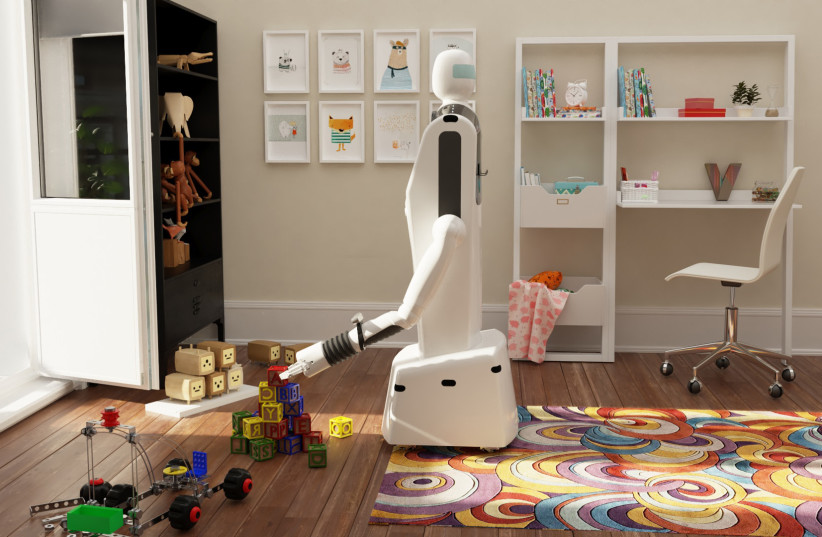Unable to hire cooks, waiters, cleaning workers, and others at minimum wages, hotel owners have been buying wheeled robots to take guests to their rooms, bring food as room service, change laundry, and perform maintenance and cleaning jobs.
With restrictions on Palestinian workers coming to Israel for employment and the reluctance of foreign workers to go during a war, the phenomenon has begun even in Israeli hotels and restaurants.
But a new study at Washington State University said such an effort could backfire and induce more human workers to quit. The study, involving more than 620 lodging and food service employees, found that “robophobia” – specifically the fear that robots and technology will take human jobs – increased job insecurity and stress, leading to greater intentions to leave their jobs.
The impact was more pronounced with employees with real experience working with robotic technology. It also affected managers in addition to frontline workers. The findings have just been published in the International Journal of Contemporary Hospitality Management under the title “Are robots stealing our jobs? Examining robophobia as a job stressor in the hospitality workplace.”
“The turnover rate in the hospitality industry ranks among the highest across all non-farm sectors, so this is an issue that companies need to take seriously,” said lead author Bamboo Chen, a hospitality researcher at the university’s Carson College of Business. “The findings seem consistent across sectors and frontline employees and managers. For everyone, regardless of their position or sector, robophobia has a real impact.”

The pandemic lockdowns hit the food service and lodging industries particularly hard, and many businesses still struggle to find enough workers. For example, the accommodation workforce in April 2024 was still 9.2% below what it was in February 2020, according to the US Bureau of Labor Statistics. The ongoing labor shortage has inspired some employers to turn to robotic technology to fill the gap.
While other studies have focused on customers’ comfort with robots, this study focused on how the technology impacted hospitality workers. Chen and WSU colleague Ruying Cai surveyed 321 lodging and 308 food-service employees from across the US, asking various questions about their jobs and attitudes toward robots. The survey defined “robots” broadly to include a range of robotic and automation technologies, such as human-like robot servers, automated robotic arms, self-service kiosks, and tabletop devices.
Analyzing the survey data, the researchers found that a higher degree of robophobia was connected to greater feelings of job insecurity and stress, which were then correlated with “turnover intention” or workers’ plans to leave their jobs. Those fears did not decrease with familiarity: employees who had more actual engagement with robotic technology in their daily jobs had higher fears that it would make human workers obsolete.
Perception of robots in the workplace
Perception also played a role. The employees who viewed robots as more capable and efficient also ranked higher in turnover intention. Chen said robots and automation can be good ways to help supplement staff, as they can handle tedious tasks humans typically do not like doing, such as washing dishes or handling loads of hotel laundry. But the danger comes if the robotic additions cause more human workers to quit. The authors point out that this can create a “negative feedback loop” that can worsen the hospitality labor shortage.
Chen recommended that employers communicate not only the benefits but also the limitations of the technology – and emphasize the role human workers play. “When you’re introducing a new technology, make sure not to focus just on how good or efficient it will be. Instead, focus on how people and the technology can work together,” he concluded.
